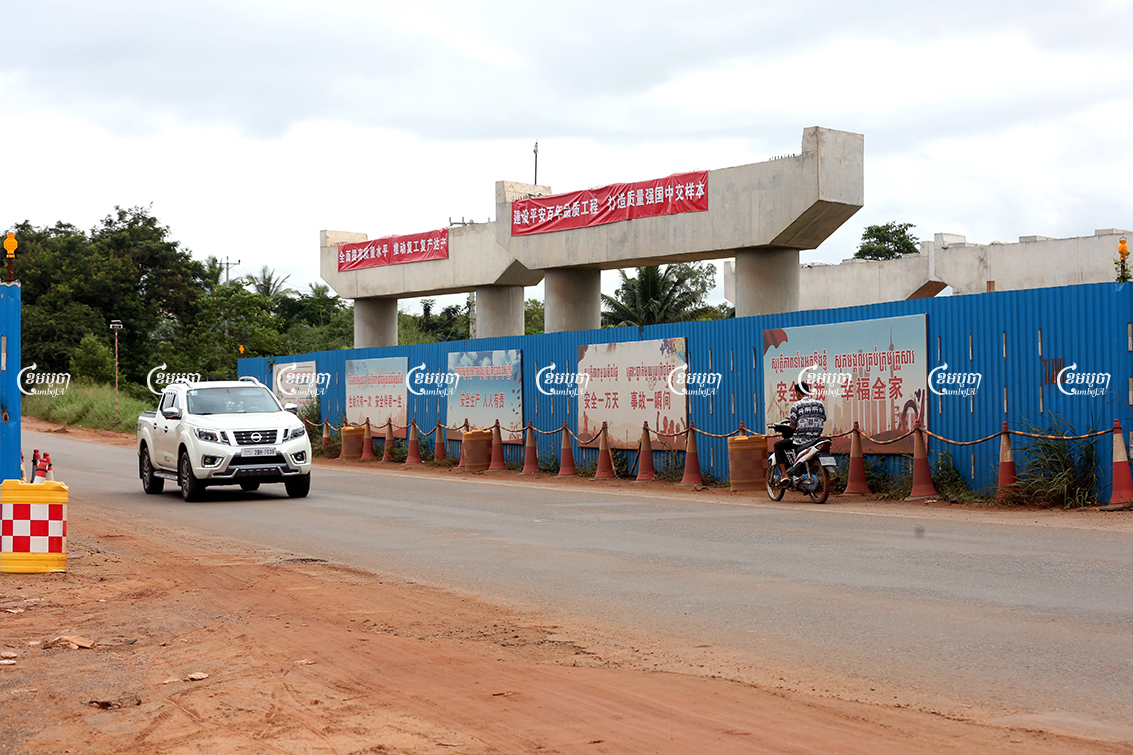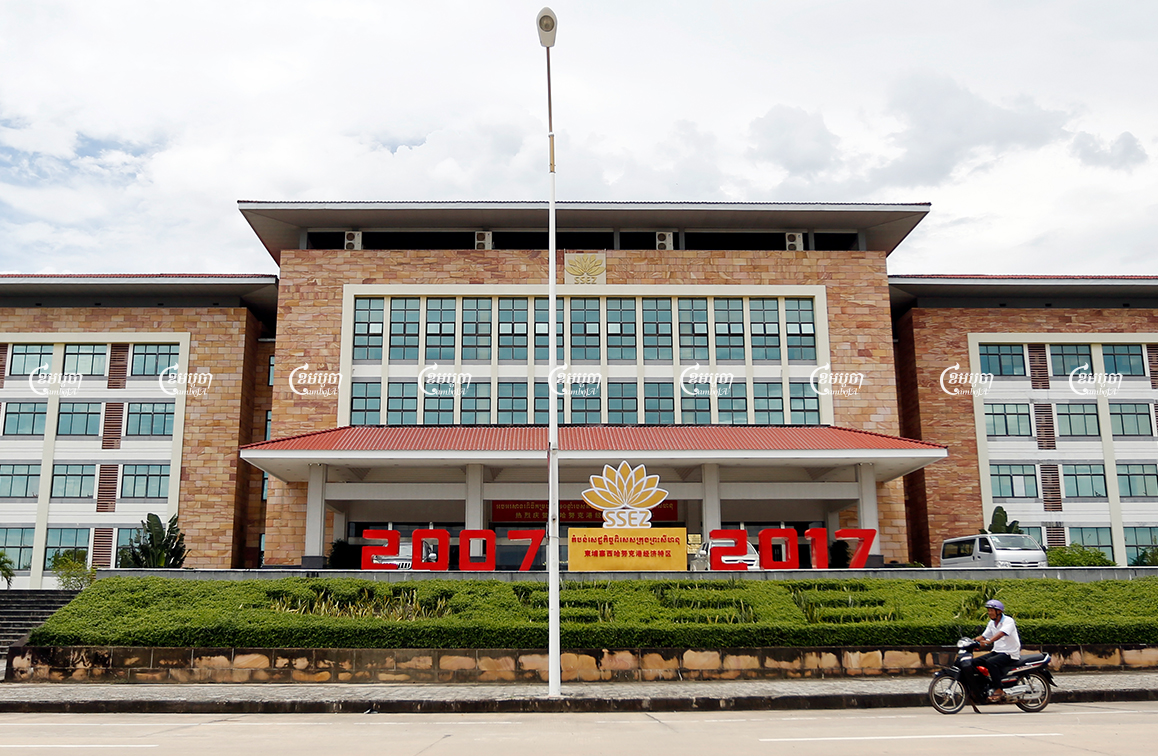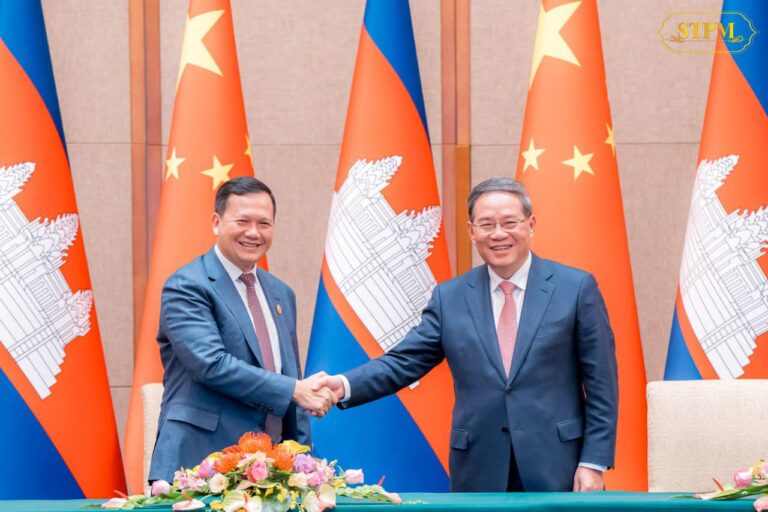China’s Belt and Road Initiative (BRI), Beijing’s ambitious global programme for expanding its international trade opportunities and promoting infrastructure development, has been linked to increased risks of increased illicit trade, corruption, and crime, especially for weak economies such as Cambodia, a report has alleged.
A 75-page research study by the Global Initiative Against Transnational Organized Crime, released earlier this May, provides case studies from Central and East Africa as well as Southeast Asia. The report specifically detailed BRI investment in Cambodia, where many of these projects are centered around the country’s port city of Sihanoukville.
According to the report, countries with weaker economies such as Cambodia are at risk of increasing indebtedness, which could create leverage over the local government and political class to accede to Chinese requests, such as having preferential access to natural resources.
In Sihanoukville, the report says, the province “has been transformed through substantial Chinese investment into an enclave of Chinese-run casinos, restaurants, high-rise office buildings and power plants, and is becoming increasingly established as an illicit economic hub”.
The report also alleges that the city “is vulnerable to the trafficking of environmental commodities, often involving Chinese and Vietnamese criminal networks. Significant seizures of mostly ivory but also of pangolin, rhino horn, timber and, more recently, illicit plastic waste have been reported,” the report said.
“Sihanoukville Autonomous Port, Cambodia’s only deep-sea port, has a flourishing but poorly regulated casino industry almost exclusively targeted at Chinese gamblers, who often become easy prey to fraud and scams,” the report stated. “This lack of regulation is also reflected in the Sihanoukville [special economic zone], from where many foreign (especially Chinese) companies operate. The US government has accused some of these entities of exploiting SEZs and falsifying the origin of their goods to evade duties.”
The Chinese Embassy in Phnom Penh did not respond to both email and Facebook messenger requests for comment by CamboJA.
However, the embassy reported in January that incoming Chinese investments in Cambodia had reached $860 million over the first 11 months of 2020, registering a 70 percent increase over the same period in 2019.
The embassy also listed a number high-profile investments and projects, such as the Sihanoukville-Phnom Penh Expressway, a new airport in Siem Reap city and a substantial increase in Chinese businesses operating out of the country.
Ministry of Public Works and Transport spokesperson Va Simsorya said that the Phnom Penh-Sihanoukville Expressway, which is a part of China’s BRI, costs nearly $2 billion, and has been more than 48 percent completed.
He said that while the construction is still underway, there have been some setbacks due to some areas being closed to limit the spread of COVID-19.
“All Chinese [infrastructure] projects are linked to China’s BRI project… It is a way to connect economic zones and ports or major logistics zones in ASEAN as well,” he said.
Data from Preah Sihanouk’s Provincial Hall revealed that there were 71 Chinese-owned projects in Sihanoukville as of January 2021 totaling $17 billion in investments.
With the increase in foreign direct investment from China, Cambodia has also seen an increase in foreign debt, especially from China, which now registers 40 percent of all public debt. As of June 30, 2020, the Kingdom’s total public debt was $7.9 billion.

Council of Ministers spokesperson Phay Siphan said the report was made by the author to target China’s role in the region.
“I do not believe the research is comprehensively made … and it is not reflecting the real situation of developing countries,’ he said, adding that Cambodia is a small country that welcomes all kinds of investments.
“This is the lesson learned by developing countries … even though [the implementation of some projects] is still not good, it is still the start of a country’s development.”
“The first potential economic gain for Cambodia from Chinese investment is infrastructure projects, because the country is in its developing stage and needs connectivity,” he said. “With [Chinese] support, we have road connectivity within the country and with neighboring nations.”
Sophal Ear, associate professor at the Occidental College in California, said that Chinese-linked BRI projects in Shihanoukville could be linked to activities centered around gambling, sex trafficking, and other less-than-desirable activities.
“Gambling is a favorite money-laundering activity when it comes to Asia, and China in particular,” he said. “Triads are always deeply engaged, as we have observed in Cambodia.”
He said that although there are always some jobs from these Chinese projects, the government should not blindly accept whatever project comes from China.
“It should weigh their benefit for the people and maximize that benefit instead of maximizing the abuse of public office for private gain … and ignoring whether the project benefits the people,” he said.
The report noted that the BRI now encompasses 138 countries, and while the related projects are expected to bring crucial services, employment opportunities and prosperity to countries across Asia, Africa and other nations in the global South, like all development projects they are also likely to have unintended consequences.
“Countries … face the risk of losing control over some of their strategic assets if they find themselves unable to pay off debts, as is illustrated by the case of Sri Lanka handing over the port of Hambantota to China on a 99-year lease in 2017,” the report said.
The report alleged that some Chinese criminals who have been able to acquire foreign passports from countries such as Cambodia or Myanmar, and operate from BRI-linked infrastructures such as casinos across Southeast Asia after having nurtured relationships with local elites.
In Cambodia’s case, the report suggests, China is now attempting to crack down on crime connected to the BRI. However, despite its desire to stop some of these illicit activities, Beijing’s power is not without limits.









